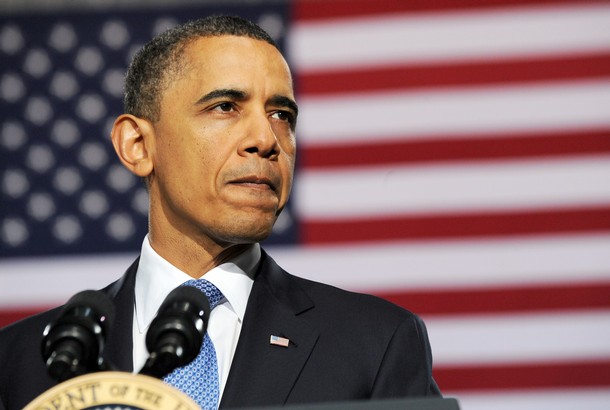
From Joseph S. Nye, Project Syndicate: Obama’s rhetoric during his 2008 campaign and the first months of his presidency was both inspirational in style and transformational in objective. His first year in office included a speech in Prague in which he established the goal of a nuclear-free world; a speech in Cairo promising a new approach to the Muslim world; and his Nobel Peace Prize speech, which promised to “bend history in the direction of justice. . . .”
In the words of a recent Brookings Institution book, Obama had an “activist vision of his role in history,” intending to “refurbish America’s image abroad, especially in the Muslim world; end its involvement in two wars; offer an outstretched hand to Iran; reset relations with Russia as a step toward ridding the world of nuclear weapons; develop significant cooperation with China on both regional and global issues; and make peace in the Middle East.” But his record of achievement on these issues has been mixed. . . .
In a new book, Confront and Conceal, David Sanger describes what he calls an “Obama Doctrine” (though he faults the president for not communicating it more clearly): a lighter military footprint, combined with a willingness to use force unilaterally when American security interests are directly involved; reliance on coalitions to deal with global problems that do not directly threaten US security; and “a rebalancing away from the Middle East quagmires toward the continent of greatest promise in the future – Asia.”
The contrast between the killing of Bin Laden and the intervention in Libya illustrates the Obama Doctrine. In the former case, Obama personally managed a unilateral use of force, which involved a raid on Pakistani territory. In the latter case, where national interests were not as clear, he waited until the Arab League and the UN had adopted resolutions that provided the legitimacy needed to ensure the right soft-power narrative, and then shared the leadership of the hard-power operation with NATO allies.
The long-term effect of the Obama Doctrine will require more time to assess, but, as he approaches the November election, Obama appears to have an edge over his opponent in foreign policy. Obama has not bent the arc of history in the transformational way to which he aspired in his campaign four years ago, but his shift to a pragmatic approach may turn out to be a good thing, particularly if voters continue to have doubts about the economy.
Joseph S. Nye, a former US assistant secretary of defense and chairman of the US National Intelligence Council, is a professor at Harvard University and one of the world’s foremost scholars of international relations. (photo: Getty) (via Real Clear World)
Image: getty%204%2017%2011%20Barack%20Obama.jpg
